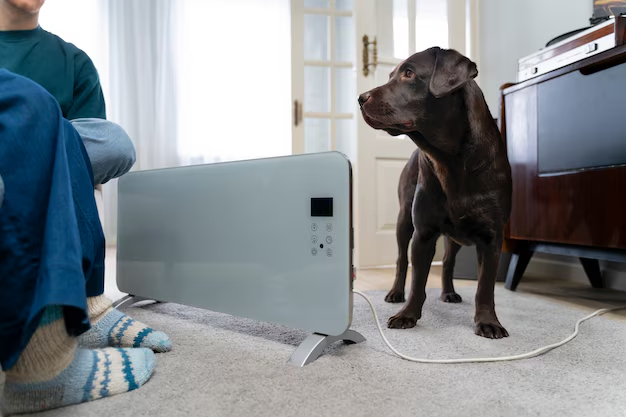Choosing the Right Extension Cord for Your Refrigerator: A Practical Guide
When it comes to large appliances like refrigerators, ensuring they are connected safely and effectively is paramount. Selecting the right extension cord can be a bit tricky, but it's an essential step to avoid potential hazards and inefficiencies. Whether you're rearranging your kitchen or situating the fridge further from an outlet, understanding what type of extension cord is suitable for a refrigerator is crucial. In this guide, we'll thoroughly explore the options, best practices, and safety considerations to help you make an informed choice.
🔌 Understanding the Basics
Before diving into the specifics of extension cords for refrigerators, let's cover some core concepts that will help in making the right decision.
Why Standard Extension Cords May Not Suffice
Refrigerators require a steady and reliable power supply. Unlike small gadgets, these appliances operate continuously and demand consistent electrical power to maintain their functions. Standard extension cords aren't usually designed to support the heavy load and continuous operation of refrigerators, which can lead to overheating or even electrical fires.
The Importance of Wire Gauge
When selecting an extension cord, the wire gauge (thickness) is a critical factor. Thicker wires can carry more electricity without overheating. The gauge is denoted by numbers; lower numbers mean thicker wires. For example, a 10-gauge wire is thicker than a 14-gauge wire. For heavy appliances like refrigerators, a lower gauge (thicker wire) is typically necessary.
Grounding for Safety
Another crucial aspect is grounding. Extension cords with three prongs offer grounding, which is essential for safe operation. This prevents electrical shock in the event of a short circuit.
🧐 Evaluating Different Extension Cord Types
With the basics in mind, let's delve deeper into specific types of extension cords and their suitability for refrigerator use.
Heavy-Duty Extension Cords
Heavy-duty extension cords are designed to handle more powerful appliances. Here's what you need to know:
- Recommended Gauge: For refrigerators, cords between 10 to 12 gauges are optimal.
- Length Considerations: The longer the cord, the thicker it needs to be to handle the power without overheating. It's advisable to keep the cord length as short as possible to minimize resistance.
- Load Capacity: Check that the cord can support the wattage load of your refrigerator. Most refrigerators require around 800-1200 watts.
Specialized Appliance Extension Cords
Some manufacturers produce appliance-specific extension cords, which are tailor-made for heavy loads:
- Design Features: These cords often include reinforced plugs, durable insulation, and are explicitly marked for appliance use.
- Availability: They might be found in home improvement stores or through specialized retailers.
Surge Protector Extension Cords
Though not always necessary, some homeowners prefer using surge protector cords to mitigate the risk of electrical surges damaging the appliance.
- Additional Protection: These cords offer protection against electrical spikes but ensure the model supports the wattage and power requirements of your refrigerator.
- Peace of Mind: Especially useful if you live in an area prone to power fluctuations.
🛠️ Installation and Usage Tips
Once you've selected the appropriate cord, proper setup is key to ensuring safety and efficiency.
Connection and Placement
- Avoid Tangles and Knots: Keep the cord straight and avoid any sharp bends that might cause wear or overheating.
- Secure Placement: Ensure the cord is placed securely, away from foot traffic to prevent tripping hazards or damage.
Regular Inspection
Keeping your equipment in check can prevent major issues:
- Routine Checks: Periodically check your extension cord for signs of wear and tear, such as fraying or exposed wires.
- Immediate Replacement: If you notice any damages, replace the cord immediately to prevent potential hazards.
Don't Overload Outlets
Using multiple appliances on a single extension cord can lead to dangerous overloads:
- Dedicated Use: Ideally, the extension cord used for the refrigerator should not support other devices.
- Matching Outlet Ratings: Ensure the outlet into which the extension cord is plugged matches the electrical requirements.
🚨 Safety Considerations
The safety of your home and appliances is paramount. Here are some guidelines to ensure safe usage:
- Avoid Using Indoors Rated Cords Outside: Make sure the cord is rated for the environment it will be used in—indoor extension cords might deteriorate quickly outside.
- Certified Products: Use cords certified by recognized safety organizations, ensuring they meet safety standards.
- Stay Informed: Always read the manufacturer’s instructions for both the refrigerator and extension cord.
📋 Key Takeaways
Knowing the right type of extension cord for your refrigerator can save you from potential safety hazards and ensure efficient operation. Here's a quick checklist to guide your purchase and usage:
- 🔍 Choose the Right Gauge: Opt for a lower gauge number (10 to 12 gauge) for reliability.
- 📏 Mind the Length: Shorter is better; ensures less resistance and optimal power delivery.
- ⚠️ Ensure Grounding: Three-pronged cords are a must for safe operation.
- ✅ Check Load Capacity: Ensure the cord can handle the refrigerator's power needs.
- ⏰ Regular Inspections: Keep an eye for wear and tear and replace when needed.
Bringing It All Together
Choosing an extension cord for your refrigerator isn't just about picking the first available option. It requires understanding the appliance's power needs, considering safety aspects, and selecting a cord that guarantees stable performance. By following these guidelines, you can maintain your fridge's efficiency and your household's safety, ensuring a well-managed kitchen setup. Always prioritize quality and safety standards when shopping for extension cords, and consult product guides or in-store experts when in doubt. By equipping yourself with the right knowledge, you can confidently keep your refrigerator running smoothly and safely.

